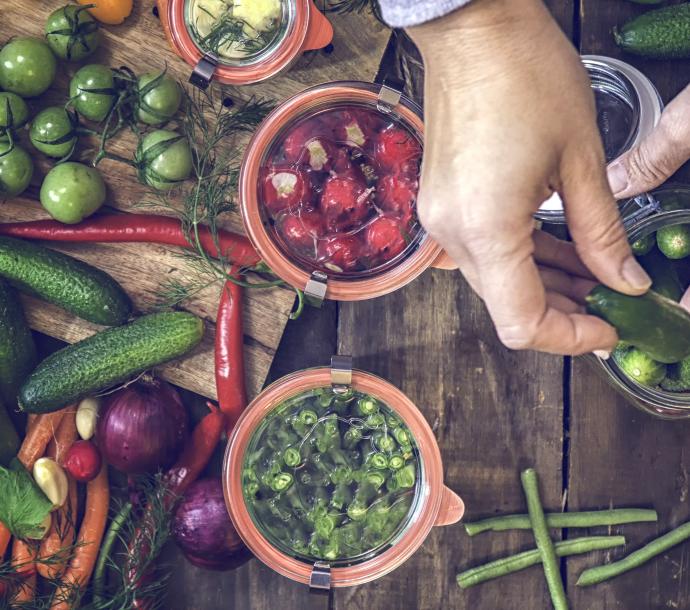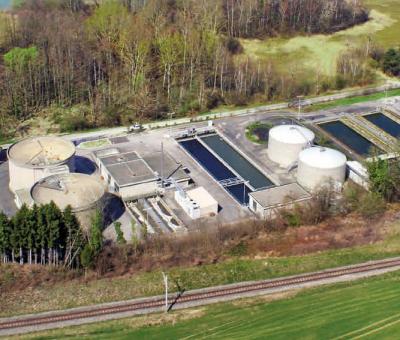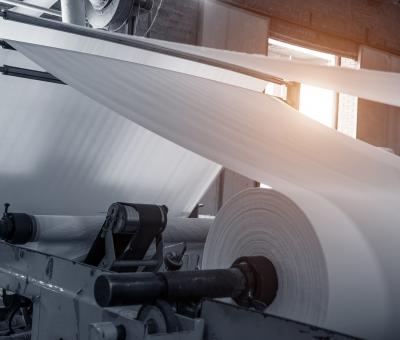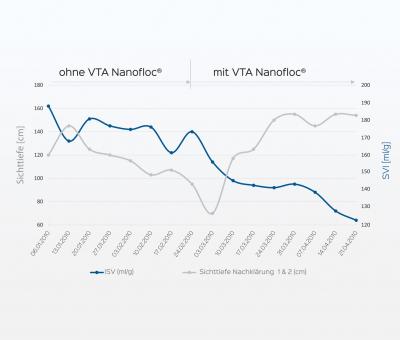Mamminger – one of the largest German producers of canned and pickled vegetables – relies on VTA know-how for wastewater treatment.
Wastewater treatment in food production is anything but simple. This is especially true in the case of vegetable processing. One of the big names in the industry is Mamminger Konserven GmbH from Lower Bavaria. Close to the Gäuboden region, in the heart of one of the most productive vegetable regions and in the largest contiguous area in Europe for cultivating cucumbers, the company has been producing canned and pickled vegetables for more than 50 years. Cocktail gherkins and silver onions, carrots and celery, beetroot, red cabbage and of course Bavarian sauerkraut – the Mamminger product range is diverse and colourful, literally. In addition to the various specialities produced under the well-known, red company logo, the company also produces own brand labels for several renowned retail chains.
Here, Mamminger attaches great importance to sustainability: freshly picked raw products from controlled cultivation are processed as quickly as possible in line with the highest quality and hygiene standards. The vegetables come from farmers in the region, so the journey from field to jar is short and takes just a few hours. Together with the certified energy management system, this saves resources and minimises CO2 pollution.
Major challenges
During the individual processing steps, from harvesting to washing, cutting and packaging, a large amount of wastewater is produced, which is contaminated organically or with cleaning agents. High proportions of nutrients, such as sugar and starch, increase the consumption of oxygen, thereby placing a strain on the ecosystem of the in-house SBR plant. Added to this, there are different types of vegetables, fluctuating nutrient ratios as well as huge seasonal peaks in the summer and autumn. During the harvesting season, large quantities of wastewater need to be temporarily stored in an 8,000-m3 storage tank prior to treatment, which encourages fermentation processes.
No wonder then that plant manager Hugo Jahrstorfer is always faced with major challenges. In the past, high COD values and filamentous bacteria, in particular, often caused problems for the plant, pushing it to its limits. If production had to be reduced for these reasons, this would result in considerable economic losses.
Precise solution
However, this danger has been averted since Mamminger has been using two VTA system products for wastewater treatment that increase the biological degradation capacity of the SBR plant. This combination was tailored individually and precisely to the company's requirements based on numerous on-site tests that VTA carried out at short intervals directly at the plant. Wastewater samples from Mamming were also analysed regularly in the VTA central laboratory and the system products adapted accordingly. Last but not least, detailed microscopic examinations were carried out in the VTA biology laboratory in order to respond specifically to seasonal changes in the wastewater.
The plant manager is more than satisfied with the result: ‘The way the system is running now, it’s like Christmas and my birthday all rolled into one’, says Hugo Jahrstorfer with a smile. In other words, it’s all good to go at the vegetable specialist.
KLAUS HERPEL,
MANAGING DIRECTOR OF MAMMINGER KONSERVEN
‘For us, it’s crucial that wastewater treatment is stable, reliable and economical. VTA supports us in this respect with its high level of competence and robust service!’
Zapytanie
Potrzebujesz więcej informacji o naszych produktach?
Skontaktuj się z naszymi ekspertami, a wspólnie znajdziemy odpowiednie rozwiązanie.





